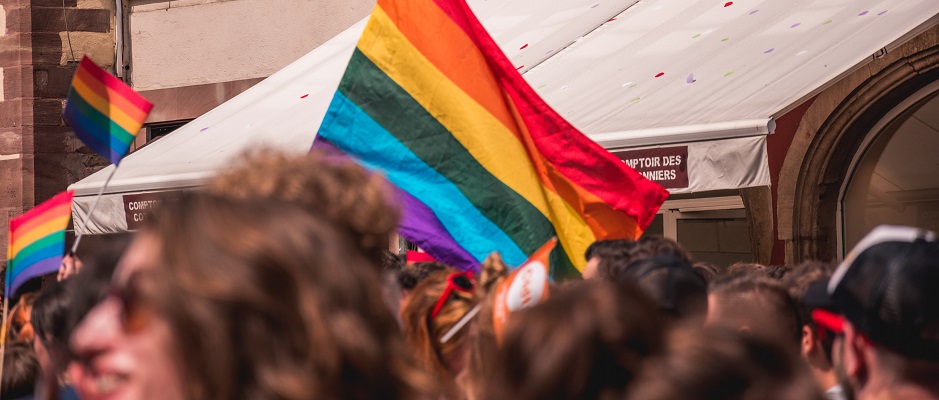Representatives of four evangelical denominations discussed the Biblical view of sexuality, the pressures of ideological trends in society, and the need to have a wise public presence.
 A LGBT Pride demonstratin. / Photo: Margaux Bellot (Unsplash, CC0)
A LGBT Pride demonstratin. / Photo: Margaux Bellot (Unsplash, CC0)
Evangelical leaders in Italy had a fruitful conversation about the homotransphobia laws set to be passed in the country and the challenges for the testimony of the gospel that may come attached.
The discussion was organised by the Italian Evangelical Alliance (AEI) just after a debate with an evangelical representative and representatives of three Italian political parties, including the rapporteur of the draft law in the national parliament.
In the introduction, Lucia Stelluti (from the AEI center district and member of the Ideaitalia editorial staff) recalled that already in 2013-2014 the Evangelical Alliance had dedicated some attention to the topic with the document: “Law on homophobia and freedom of speech. Can they be reconciled?” and a conference was organised in January 2014 on the issue “Homophobia: the dangerous uncertainties and the necessary clarifications”.
As the draft law developed, the AEI issued a statement on 6 March commenting the parliamentary discussion entitled “Fighting homophobia yes, no to imposing single thinking”.
The video recording of this conversation is also available on the AEI You Tube channel.
Giovanni Orlando (Elim Churches in Italy) recalled the evangelical need to refer to the biblical coordinates that tell us that we are all creatures of God, precious in his eyes, but also sinners in need of conversion to Christ.
The announcement of the Gospel, when accepted with faith, leads to a path of recovery from one's own distortions, whatever they are, including those relating to the sexual sphere.
Elpidio Pezzella (New Pentecost Church) looked at the biblical symbol of the rainbow, now embraced by the LGBTI movements, but whose meaning is God's commitment to the world. The rainbow must remind us of our response of faith to God, not excite our rebellion against Him. As believers in Christ, he said, we are prisoners of the Word and not of the present cultural trends.
The church welcomes everyone, without distinction and, precisely because it serves the Word, it invites everyone to change according to the gospel. We all have to go back to being children, re-learning to live in the will of God.
Alessandro Piccirillo (Evangelical Reformed Baptist Churches in Italy) spoke about the current cultural changes on which the claims of the LGBTI movement are based. He recalled two stages in particular: the sexual revolution of the sixties and the emergence of the culture of "rights" extended to personal identity and no longer thought of in binary terms (man-woman).
Despite the apparent "strength" of these impulses, the question about who we are remains open. Free sex and liquid identities do not answer this profound question: only the Gospel of Christ does it fully and satisfactorily.
Lastly, Marco Sammartino (Apostolic Church in Italy) underlined the importance of the "public" profile of the evangelical witness. As Paul in Athens confronted the cultural trends of the moment with an open face, remaining faithful to the Gospel of the risen Lord, so we can and must keep the Word of life high in the face of the cultural and social challenges we encounter. The task is not easy, given the pressures to which the churches are subject, but the Gospel calls us not to draw back.
In the final part, Lucia Stelluti recalled the need for Italian evangelicalism to invest in strengthening the evangelical identity in order to know who we are and what we believe in, and also in training opportunities in order to face challenges in a competent way and finally in the goodness to cultivate unity in the Gospel among all born-again believers, men and women.

Las opiniones vertidas por nuestros colaboradores se realizan a nivel personal, pudiendo coincidir o no con la postura de la dirección de Protestante Digital.
Si quieres comentar o